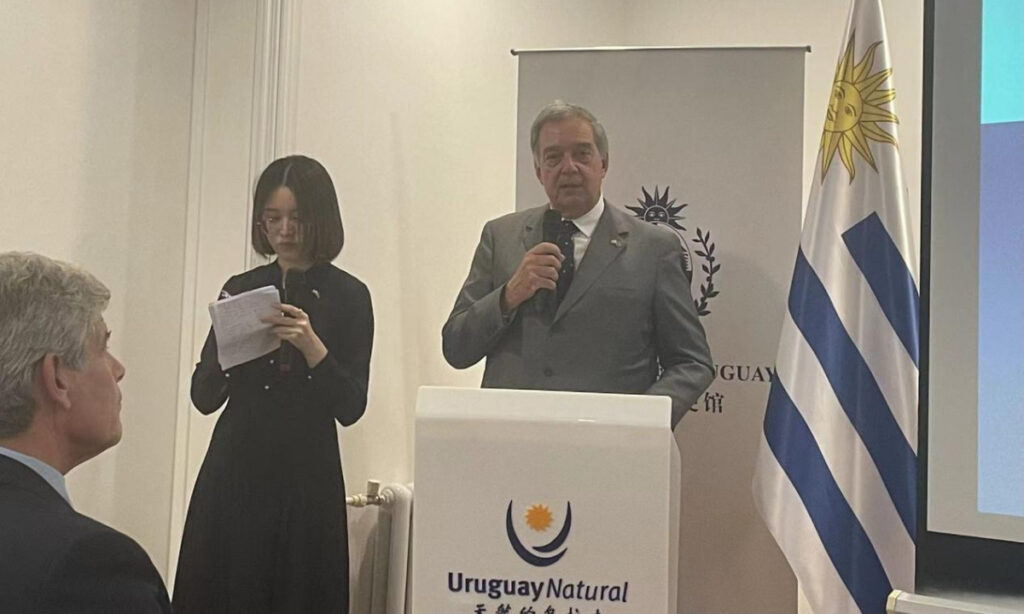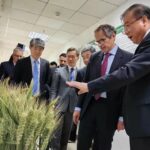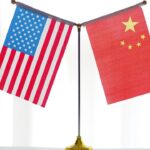Uruguay’s Minister of Livestock, Agriculture and Fisheries Fernando Mattos just finished his 19-day trip in China on Friday, with fruitful results of bilateral agricultural cooperation including agreements between two agricultural ministries as well as institutions.
Mattos said that China’s rapid economic recovery has brought big opportunities to Uruguay, adding that the China-proposed Belt and Road Initiative (BRI) has reduced the geographical distance between the two far friends and partners.
The Embassy of Uruguay in Beijing told a press conference on Thursday that the visit took place at the invitation of Tang Renjian, China’s Minister of Agriculture and Rural Affairs. During Mattos’ 19-day visit in China, he completed an intense agenda with approximately 100 meetings including conferences with General Administration of Customs of China (GAC) and the Ministry of Agriculture and Rural Affairs of China (MOA).
In addition, Mattos visited Hong Kong, Macao, Guangdong, Henan, Shanghai, Jilin, Shandong and Beijing, and also met with the highest authorities of some international organizations in China such as the president of the New Development Bank (NDB) and the representative of Food and Agriculture Organization of the UN in China.
According to the Embassy of Uruguay, Mattos signed the Memorandum of Understanding between the Ministry of Livestock, Agriculture and Fisheries of Uruguay and the MOA on cooperation in fisheries and aquaculture.
The Minister also witnessed the signing of important cooperation agreements between institutions in Uruguay and China. During these days, the National Agricultural Research Institute of Uruguay signed a cooperation agreement with the National Food and Strategic Reserves Administration of China, and the Uruguayan Horse Breeders Association signed a cooperation agreement with the China Horse Industry Association.
Mattos’ visit came after Uruguayan Foreign Minister Francisco Bustillo Bonasso’s five-day visit to China starting from April 16, during which Bustillo said that Uruguay attaches great importance to Uruguay-China relations and is expected to further work closely with China in terms of economic field and other sectors.
According to data released by GAC, bilateral trade reached $7.44 billion in 2022, up 14.9 percent on a yearly basis. China’s imports from Uruguay jumped 23 percent to hit $4.46 billion last year.
“We ended a visit of such details with an extensive agenda due to the fact that it has been four years that we could not make trips to China and we had some of bilateral pending issues, so this trip is necessary to generate more closer diplomatic, commercial and personal relationship, bring more opportunities to consolidate the fact that Uruguay is a great strategic supplier of food and fiber for China,” Mattos said during the press conference.
During an exclusive interview with the Global Times on Thursday, Mattos said China’s rapid economic recovery has brought “big opportunities” for Uruguay. “We have seen everyone is optimistic about the recovery with increasing demand and sales. More trade, more movements and more purchase … This is very good for us because we depend on this to increase the economic output and I will bring the good news when I return to my country.”
Uruguay is the first Southern Common Market (MERCOSUR in Spanish) country to sign a Memorandum of Understanding with China on cooperation within the framework of the BRI. Mattos noted that the BRI has reduced the geographical distance between the two far friends and partners, which means more connectivity with more shipping lines, airlines that can bring Uruguayan fresh agricultural products to the Chinese consumers’ baskets.
Mattos told the Global Times that during his visit to the NDB, he talked with the president about the variation of currencies. He said that in the future, as China will have more economic activities in the global financial market, yuan may transform as a reference currency.
During these visits to different Chinese cities, Mattos said that he and his delegation have found enormous future possibilities of complementary and opportunities to expand the commercial and technical cooperation to improve their productive processes within a shared spirit of sustainability.
In addition, they have also seen the country’s rapid modern economic development. “Western countries lack knowledge of China’s reality, and we will talk more about the true living conditions we have seen as well as the progress that the world’s huge market has made including removing people from extreme poverty in such a short time, which is really admirable,” Mattos noted during the press conference.
“Looking ahead, regarding the results we two countries can obtain from the trade consolidation, we hope more confidence for more investment, sales of services and tourism, with higher level of relationship that goes beyond commercial exchange,” he added.
(Global Times)




